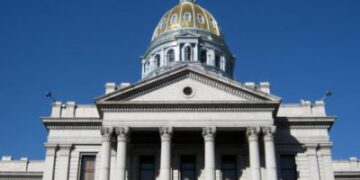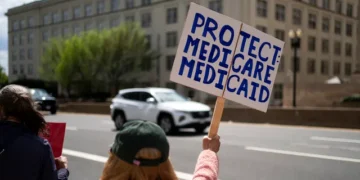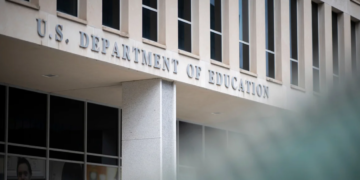Oct 28, 2024 Story by: Editor
In 1831, Black leaders and white abolitionists proposed establishing the country’s first African American college in New Haven, Connecticut, seeking to expand access to education during a time when slavery was pervasive.
However, the city’s freemen—white, male property owners who were the only ones allowed to vote and often connected to Yale College—overwhelmingly voted against the proposal, 700-4. This rejection was followed by violent attacks targeting Black residents, their homes, and the properties of their white supporters.
Now, nearly two centuries later, New Haven officials are considering a public apology for the harm caused by their predecessors’ decision to block the college. In August, City Alder Thomas Ficklin Jr., a Democrat, with City Historian Michael Morand, introduced a resolution calling for an official apology and urging city schools and Yale University to teach about the events of 1831. The proposal may soon undergo further review, with a full Board of Alders vote expected later this fall.
Ficklin, however, passed away unexpectedly at his home on October 9 at the age of 75, shortly after an interview with The Associated Press. “My political ancestors were involved with this,” Ficklin shared in the interview. “Now we have a chance to kind of render our opinion not only on their actions, on our ancestors’ actions, but how we are going to be judged in the future.”
His wife, Julia Ficklin, noted that this resolution was one of his final projects. “I do know that it was very important to him,” she told the AP. “And one of my prayers these last couple days as I’m grieving is that someone will step up and pick up where he left off with it and see it through, one way or another.”
Morand has vowed to continue Ficklin’s efforts, confirming that alders will advance the resolution toward a vote.
Interest in the 1831 college rejection reignited two years ago when Morand and Tubyez Cropper, both of whom work at Yale’s Beinecke Rare Book & Manuscript Library, released a short documentary video about the incident.
The debate over an apology follows Yale’s February statement formally apologizing for its historical ties to slavery. Research revealed that many of Yale’s founders, early leaders, and donors had enslaved people. Leading figures at Yale also opposed the 1831 Black college proposal.
Two years after the college was rejected, Connecticut’s state legislators enacted the “Black Law,” prohibiting the establishment of schools for educating Black people from out of state. This law was later referenced in the infamous 1857 Dred Scott decision, which declared that African Americans could not be U.S. citizens. This decision was nullified by constitutional amendments following the Civil War.
The 1831 events marked a significant moment in the abolitionist movement, Cropper explained, though the term “abolition” was not yet common. The college plans, supported by the first Convention of the Free People of Color in Philadelphia, gained nationwide attention through abolitionist publications.
“This is really like a turning point, indeed,” Cropper remarked.
By mid-1831, supporters had concrete plans for the college, selecting a site in New Haven where interstates 95 and 91 intersect today, and securing $10,000 in donations from both white and Black supporters.
In early September, Simeon Jocelyn, a white pastor for a Black congregation in the city, spoke at the church about improving the lives of Black people. Jocelyn and William Lloyd Garrison, a Boston abolitionist newspaper publisher, were among the white supporters of the college.
The following day, New Haven’s white mayor, Dennis Kimberly, a Yale alumnus, announced a freemen’s meeting in two days to address the college proposal. The meeting resulted in a rejection of the proposal.
News of Nat Turner’s violent slave rebellion in Virginia, where at least 55 white people were killed, had recently reached New Haven. In response to Turner’s rebellion, scores of Black people were killed, and Turner was later executed. According to Yale researchers, this event may have influenced the freemen’s opposition to the college.
At the time, slavery was legal but limited in Connecticut, which didn’t abolish slavery until 1848, the last New England state to do so.
The freemen’s resolutions opposed “the immediate emancipation of slaves in some states” as “an unwarrantable and dangerous interference with the internal concerns of other States.” They argued that a Black college would threaten the prosperity of Yale and other local schools and harm the city’s best interests.
After the vote, Southern newspapers praised the decision, which, as Morand noted, reinforced the “status quo of slavery and racial oppression.”
Among the college’s key opponents was David Daggett, a Yale Law School founder and former U.S. senator. In 1833, Daggett, a Connecticut judge, presided over a case that convicted Prudence Crandall, later honored as Connecticut’s state heroine, for running a school for Black girls in violation of the Black Law. Though Crandall’s conviction was overturned, she closed her school due to repeated attacks, including an arson attempt.
In 1837, Cheyney University of Pennsylvania became the nation’s first historically Black college or university. The following year, Connecticut repealed its Black Law. Source: WBUR

















